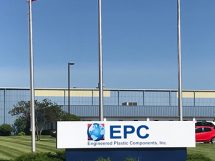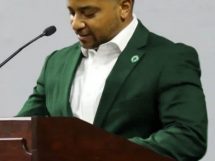City has earned a 4-STAR Community Rating
LOUISVILLE, Ky. (Sept. 30, 2016) — Louisville Metro Government has released the 2015 Progress Report on the city’s sustainability plan, Sustain Louisville. The document highlights goal and initiative accomplishments that took place in 2015 and updates targets and strategies to align with new programs.
 The Sustain Louisville plan includes a comprehensive approach to accelerate the city-wide sustainability movement. Focus areas include energy, environment, transportation, economy, community, and engagement.
The Sustain Louisville plan includes a comprehensive approach to accelerate the city-wide sustainability movement. Focus areas include energy, environment, transportation, economy, community, and engagement.
The plan was developed with input from the community and was released in March 2013. Sustain Louisville has evolved since its release, now featuring 17 goals and over 80 initiatives.
The following 2015 key successes are included in the third-year progress report:
- Louisville earned a 4-STAR Community Rating for sustainability excellence. Louisville was the 13th in the nation to be recognized with a 4-STAR rating out of nearly 100 communities actively using the STAR Community Rating System.
- The Division of Community Forestry (DCF) was established within the city’s Office of Sustainability. The Division released the city’s first Urban Tree Canopy Assessment.
- In 2015, 9,586 trees were planted, for a total of 25,790 trees since 2011. Tree planting efforts were led by the Division of Community Forestry, Brightside and many community partners. A tree protective ordinance is being developed in partnership with the Metro Council.
- Louisville moved to 24th on the Environmental Protection Agency’s list of Top Cities with the most ENERGY STAR certified buildings.
- Metro Parks received a grant to develop a conceptual plan for a 1.6-mile ecological restoration and hike and bike trail along Beargrass Creek.
- The Office of Sustainability’s Green Infrastructure Incentive program awarded $30,000 in incentive funds. Business owners and nonprofits used the funds to install stormwater retention features including a green roof, pervious pavers and rain gardens.
- GPS devices were installed on 481 Metro-owned fleet vehicles to help increase fuel efficiency and decrease idling. In the first five months, the city reduced 49,000 pounds of carbon emissions, which is equivalent to eliminating 53,268 standard vehicle miles.
- The Transit Authority of River City (TARC) replaced diesel-powered trolleys with 10 electric buses and announced federal funding for five more all-electric ZeroBus vehicles.




















Add Comment